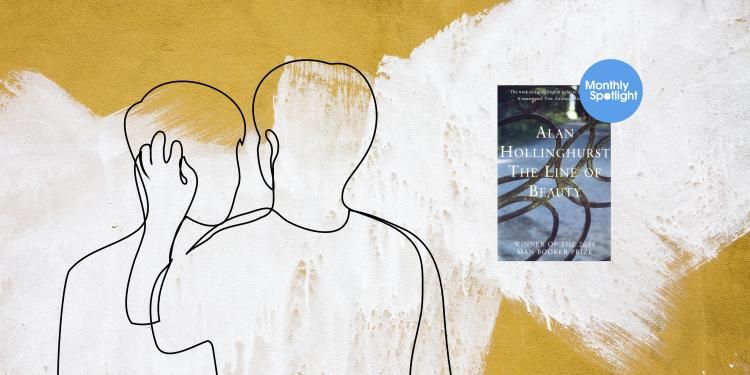Thomas Jones, The London Review of Books
‘The Line of Beauty is told in the third person, but everything is filtered through a single consciousness, Nick’s: we see things as he sees them, so there is no logistical reason for the novel not to have been in the first person. It isn’t, however, partly because it’s more Jamesian not to be; and also because Nick is an actor on a public stage as well as an individual with a private life […] Nick holds an uncertain position in the world he moves in: he is there because the others want him to be; he isn’t wealthy enough to survive on his own. What he has to offer is a refined aesthetic sense, the ability to appreciate in elegant sentences the beautiful things that the people around him are able to buy. He doesn’t make beautiful things himself, but he does, by the way that he sees them, make things beautiful.’
Anthony Quinn, The New York Times Sunday Book Review
‘Moralist that he is, Hollinghurst generally prefers to proceed through subtle modulations of irony, slipping in a dagger rather than wielding a cutlass. This treatment is as true for Nick as for the cast of grandees and gargoyles among whom he moves. His ambivalent character is a vehicle for the novel’s central tension – between private conscience and public display […] Although it gathers ominously in mood, The Line of Beauty feels more blissful than baleful in its anatomy of the era because it is, among other things, a magnificent comedy of manners. Hollinghurst’s alertness to the tiniest social and tonal shifts never slackens, and positively luxuriates in a number of unimprovably droll set pieces.’
Peter Conradi, The Independent
‘Alan Hollinghurst likes to shock with vivid sex scenes. Yet to ghetto-ise him as a “gay novelist” is too limiting. He is much, much bigger than that. And here at last he shows real scope and depth. … The rich – Jesus might have said – “Ye shall always have with you.” Hollinghurst has studied them, as they once were, back in the far-away mid-Eighties. His brilliant recreation of that bigoted, nepotistic, racist, callous and mean-spirited epoch is timely. If Thatcher’s London has rarely been better “done” by a British novelist, Hollinghurst loves the city more than most. ‘
Alfred Hickling, The Guardian
For the first time, there is a clear sense that Hollinghurst has extended his powers to create a universe rather than a clique; and though it adopts a highly privileged perspective, the novel has sufficient breadth to evoke the full social spectrum of 1980s Britain - gay and straight, rich and poor.
Michael Dirda, The Washington Post
‘Hollinghurst interlaces three different plots – a Condition of England novel set during the Thatcher era of the 1980s, a Jamesian psychological inquiry cum social comedy about the well-to-do Fedden family and their friends, and a gay coming-of-age story […] Throughout Nick remains the center of consciousness, always sympathetic, even as he grows increasingly coarse in his sexual sophistication (and taste for cocaine). What makes the book so fine, though, is its writing — suffused with enough wit to keep the diction original and lively without overpowering the reader with campiness or excess.
David Wiegand, The San Francisco Chronicle
‘The story may focus on the uneasy coexistence among different classes and races in the middle of the Thatcher era in England, but the times themselves are the central character. On the surface – and, make no mistake, the significance of surface is more than superficial here – the setting seems obvious and apt […] The world of the upper classes is unsafely sheltered within a bubble of self-delusion, and the greatest self-delusion of all is that somehow their rank and privilege will protect them, not just from AIDS but also from the social, political and moral decay that their studied class indifference has wrought.’
Michael Upchurch, The Seattle Times
‘Privilege and parasitism, bluster and bigotry, cocaine bingeing and stock-market finagling … they’re all here. And it sure doesn’t hurt that Hollinghurst is one of the best writers of party scenes since F. Scott Fitzgerald […] Hollinghurst is a dab hand at weaving these multiple strands of Nick’s life together, and he knows exactly how to build tension through incisive character portrayal. Catherine and Wani are temperamental time-bombs, in constant danger of detonation. Thatcher is an éminence grise who might just make an appearance in the book. AIDS is a threat about to hit Nick’s circle. Tory eagerness to ‘get public services back into private hands’ as quickly as possible seems bound to produce some fallout of its own.’
















